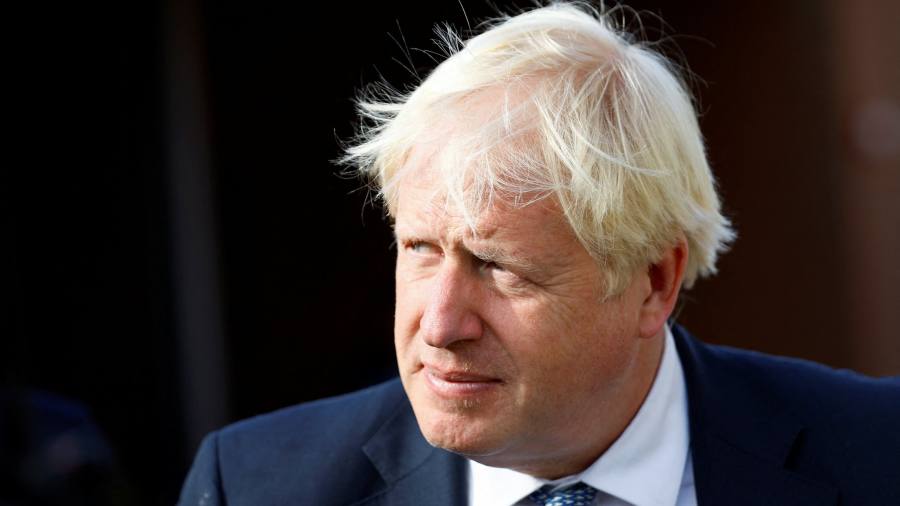
Rishi Sunak’s government on Thursday refused to hand over Boris Johnson’s unredacted WhatsApp messages to the official Covid public inquiry, instead launching a legal challenge to try to block their release.
The move puts Sunak at loggerheads with the inquiry, headed by former judge Baroness Heather Hallett, and fuelled claims by opposition parties that he was presiding over a “cover-up”.
Meanwhile, the Cabinet Office revealed that Johnson had only given it communications relating to the period from May 2021 — more than a year after the pandemic hit Britain and the same month that he “acquired a new phone” and announced the Covid inquiry.
The former prime minister has now been asked by the Cabinet Office to provide any further messages required by the Covid inquiry.
Johnson will face questions about what happened to messages on his old phone.
Hallett gave the government until 4pm on Thursday to hand over unredacted material relating to Johnson’s time as prime minister, including WhatsApp messages and notebooks.
But at 4.20pm the Cabinet Office announced it would seek leave to bring a judicial review, arguing that Hallett was exceeding her statutory powers in demanding the full cache of unedited material.
There is an awareness in Whitehall that the decision regarding whether or not to submit Johnson’s communications unredacted will set a precedent for what other ministers — including Sunak himself — might have to hand over to Hallett’s team at a later date.
Sunak was chancellor during the pandemic and was sceptical about lockdowns, warning about the economic damage they would cause.
The decision to seek a judicial review represents a breakdown in relations between Sunak’s government and the inquiry set up by Johnson to learn the lessons of the Covid crisis; it remains to be seen if it will delay proceedings.
The Cabinet Office said the decision had been taken “with regret” but that it would challenge the right of the inquiry to “compel production of documents and messages which are unambiguously irrelevant to the inquiry’s work”.
It added: “We consider there to be important issues of principle at stake here, affecting both the rights of individuals and the proper conduct of government.
“The request for unambiguously irrelevant material goes beyond the powers of the inquiry.” Hallett has argued that she should decide whether or not material is irrelevant.
The Cabinet Office said her demands represented “an unwarranted intrusion into other aspects of the work of government” and an intrusion into the privacy of officials and ministers.
Johnson had indicated that he was willing to see all of his unredacted WhatsApp messages, notebooks and diary entries handed over to the inquiry and opposition parties claimed Sunak was blocking Hallett’s work.
Angela Rayner, Labour’s deputy leader, accused Sunak of engaging in a “desperate attempt to withhold evidence”.
“After 13 years of Tory scandal, these latest smoke and mirror tactics serve only to undermine the Covid inquiry. The public deserve answers, not another cover-up,” she said.
“Instead of digging himself further into a hole by pursuing doomed legal battles to conceal the truth, Rishi Sunak must comply with the Covid inquiry’s requests for evidence in full. There can be no more excuses.”
Speaking earlier at a summit in Moldova, Sunak insisted the government was “confident in our position”. He stressed the importance of learning lessons from the pandemic and approaching the inquiry “in the spirit of rigour but also transparency and candour”.
The government has handed over more than 55,000 documents and “will continue to comply, of course, with the law” and “co-operate with the inquiry”, Sunak said.
Officials have accused the inquiry of taking an “absolutist” approach to the disclosure of material, but insisted the wrangling over the matter was not confrontational.